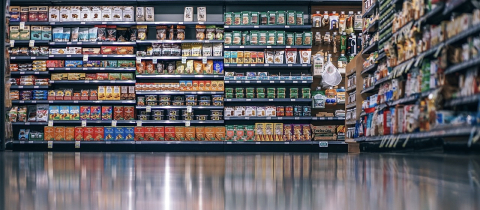This article was first published in The Montreal Gazette.
One way to get people to reduce their consumption of sugary drinks is a soda tax. In fact, the World Health Organization has recommended just that. While New York tried to bring in such a tax and failed, cities like Berkeley and Philadelphia made it happen in 2015 and 2017.
Whether such a tax will actually work depends on two major factors. The first is whether the cost is passed on to consumers and the second is whether a price increase causes consumers to change their behaviour.
For a tax on soft drinks to be effective, the impact needs to be felt by consumers. If businesses simply swallow the cost of the tax, then it will bring the government higher revenues, but there will be no change in soft drink purchases. However, data from Mexico’s and Berkeley’s sugar taxes showed that prices did go up after the tax was put in place.
The second factor is whether people will change their behaviour if costs rise. A tobacco tax will raise cigarette prices and lower smoking rates, but a tax on luxury cars will likely not drastically impact Ferrari, because people who can buy a Ferrari are not likely to change their minds because of small fluctuations in price.
So, will people change their behaviour in response to a sugar tax? A study in JAMA about the Philadelphia sugar tax suggests they probably will. After that city implemented a 1.5-cent per ounce tax on sugar-sweetened beverages in 2017, soda sales dropped from $78.5 million in 2016 to $50.8 million.
While a sugar tax sounds easy to implement, it is not. While most of the existing sugar taxes have focused on soft drinks, because they are one of the biggest contributors to excess sugar consumption, we also consume lots of sugar in fruit juices and alcohol, and it is not entirely clear where we should draw the line.
As well, a practical problem with these taxes is that when they are implemented by a single city, people can get around the tax with a short drive to a neighbouring municipality. However, this loophole isn’t big enough to undermine the program. In Philadelphia, soda sales outside the city limits did rise after the tax was implemented. But they rose only by $7.9 million, in contrast to the $27.7 million drop inside the city. So while cross-border shoppers partially offset the gains of the program, they did not negate it completely.
Another problem is that this type of tax, what some call a sin tax, is by definition a regressive tax where everyone has to pay the same amount regardless of income. This puts a disproportionate burden on lower-income households and is blatantly unfair. But these are the very people who buy more sugary drinks and are most likely to respond to price increases by buying less. They are the people who are likely to benefit most, because the goal of the tax is not to raise tax revenues, but to get people to reduce soft drink consumption.
Whether these taxes will lead to meaningful reductions in obesity, diabetes and heart disease remains to be seen, but there is every reason to think they will. However, it will likely take a few years before we can see the impact in cities like Philadelphia. The real question is, are we going to wait that long before we implement them in Canada? I hope not.
Want to comment on this article? View it here on our Facebook page!







